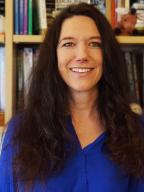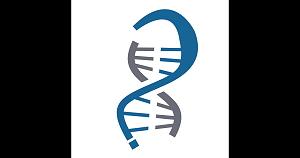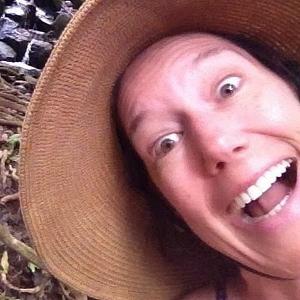
Biography
Director CSUN-UCLA Stem Cell Scientist Training Program
Education, etc.
B.S., Biological Sciences, Illinois State University
Ph.D., Microbiology and Immunology, University of California Los Angeles
Post doctoral Fellowship, Microbiology, Immunology, and Molecular Genetics, University of California Los Angeles
Teaching Innovations
Exceptional Service to Students Award , CSUN (2016)
Don Dorsey Excellence in Mentoring Award, CSUN (2013)
Teaching Award, College of Science and Mathematics, CSUN (2009)
 | Elite Gene Team on the App Store Elite Gene Team App https://apps.apple.com/us/app/elite-gene-team/id1046974841 itunes.apple.com |
ePortfolio https://contentbuilder.merlot.org/toolkit/html/snapshot.php?id=65226554931352 |
 | Cindy Malone - YouTube Channel YouTube Tutorials https://www.youtube.com/channel/UC3K2TdToNgAJcTK_V94d7qw |
News
CSUN Receives $2.77 Million to Build ‘Bridges’ to Regenerative Medicine
Investing in student researchers now for future stem cell therapy homeruns
Research Specialties
My research program focuses on gene regulation or the process of how genes are turned on and off. Controlling when and where genes are turned on and off is critical for normal cell function. Without this strict control of gene expression, organisms would not develop properly or be able to sustain life. The study of gene regulation is a fundamental part of the search for more effective treatments for a wide range of diseases including heart disease, diabetes, autoimmune disorders, and cancer. Using standard molecular biology techniques, we dissect both the genetic factors and the epigenetic factors affecting the expression of several different gene promoters. Genetic factors involved in gene regulation include transcriptional activators and repressors whose interaction with gene promoters and enhancers are dictated by the DNA sequence, or changes in DNA sequence that occur through mutations. Epigenetic factors involved in gene regulation consist of chemical modifications to the DNA, like CpG methylation, and modifications to the chromatin, like histone acetylation, but do not involve DNA sequence changes.
Representative Publications
Saunders J, Wisidagama DR, Morford T, Malone CS. Maximal Expression of the Evolutionarily Conserved Slit2 Gene Promoter Requires Sp1.Cell Mol Neurobiol. 2016 Aug;36(6):955-64. doi: 10.1007/s10571-015-0281-8. Epub 2015 Oct 11. PMID:26456684
Xie Y, Zhang J, Lin Y, Gaeta X, Meng X, Wisidagama DR, Cinkornpumin J, Koehler CM, Malone CS, Teitell MA, Lowry WE. Defining the role of oxygen tension in human neural progenitor fate. Stem Cell Reports. 2014 Nov 11;3(5):743-57. doi: 10.1016/j.stemcr.2014.09.021. Epub 2014 Oct 30. PMID:25418722
Jin Zhang, Esther Nuebel, *Dona R.R. Wisidagama, Kiyoko Setoguchi, Jason S. Hong, Christine M. Van Horn, *Sarah S. Imam, Laurent Vergnes, Cindy S. Malone, Carla M. Koehler, and Michael A. Teitell. (2012) Measuring energy metabolism in human pluripotent stem cells and differentiated cells. Nature Protocols 10;7(6):1068-85
Sims, R., Vandergon, V.M., and Malone C.S. (2012) The mouse B cell-specific mb-1 gene encodes an immunoreceptor tyrosine-based activation motif (ITAM) protein that may be evolutionarily conserved in diverse species by purifying selection. Molecular Biology Reports, 39(3):3185-96, DOI 10.1007/s11033-011-1085-7 (corresponding author)
Henson, S.E., Morford, T., Stein, M-P., Wall, R. , and Malone, C.S. (2011) Candidate genes controlling the aggressive phenotype of mantle cell lymphoma. Acta Histochemica, 113:729-742. (corresponding author)
Balatoni, C.E., Dawson, D.W., Suh, J., Sherman, M.H., Sanders, G., Hong, J.S., Frank, M.J., Malone, C.S., Said, J.W., Teitell, M.A. (2009) Epigenetic Silencing of Stk39 in B-Cell Lymphoma Inhibits Apoptosis from Genotoxic Stress. American Journal of Pathology, 175(4):1653-1661.
*Malone, C.S., Kuraishy, A.I., Fike, F.M., ^Loya, R.G., ^Mikkili, M.R., Teitell, M.A., and Wall, R. (2006) B29 gene silencing in pituitary cells is regulated by its 3' enhancer. Journal of Molecular Biology, 362(2):173-183. *corresponding author. ^CSUN Students.
Doerr, J.R., Malone, C.S., Fike, F.M., Gordon, M.S., Soghomonian, S.V., Thomas, R.K., Tao, Q., Murray, P.G., Diehl, V., Teitell, M.A., and Wall, R. (2005) Patterned CpG methylation of silenced B cell gene promoters in classical Hodgkin lymphoma-derived and primary effusion lymphoma cell lines. Journal of Molecular Biology 350 (4): 631-40.
Patrone, L., Henson, S.E., Wall, R., and Malone, C.S. (2004) A conserved sequence upstream of the B29 (Ig?, CD79b) gene interacts with YY1. Molecular Biology Reports, 31:1-11.
French, S.W., Malone, C.S., Shen, R.R., Renard, M., Henson, S.E., Miner, M.D., Wall, R., and Teitell, M.A. (2003) Sp1 Transactivation of the TCL1 Oncogene. Journal of Biological Chemistry, 278: 948-955.
Malone, C.S. and Wall, R. (2002) Bob1 (OCA-B, OBF-1) differential transactivation of the B cell-specific TATA-less B29 (Ig-beta) and mb-1 (Ig-alpha) gene promoters. Journal of Immunology, 168: 3369-3375.
